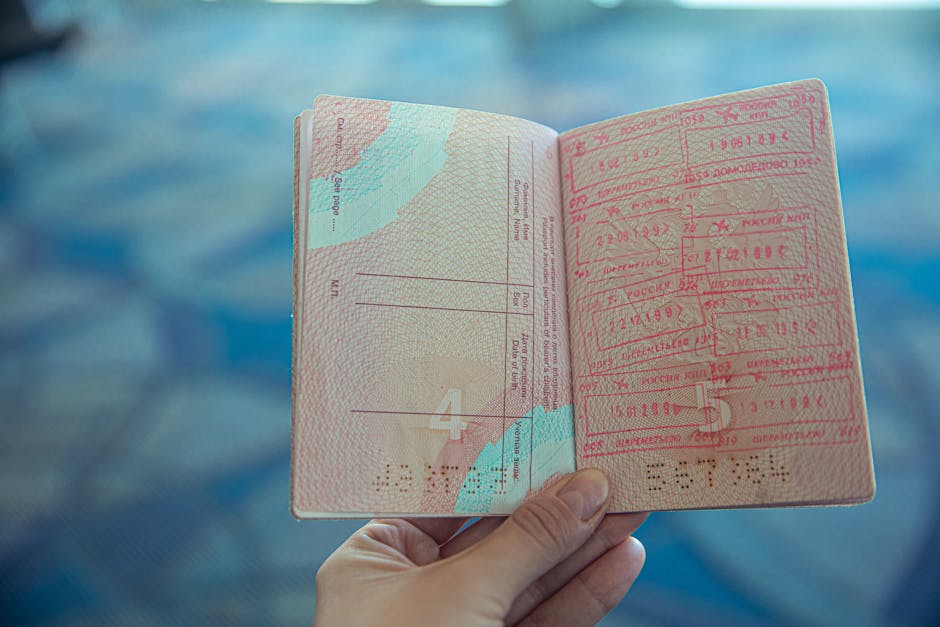Visa Documentation for Oman Catering Workforce
Understanding Oman’s Visa Framework for Catering Professionals
Oman’s visa system categorizes workers based on their skills and industries. The catering sector falls under specific classifications that determine documentation requirements. Firstly, employers must obtain proper approval from the Ministry of Labour. Additionally, they must secure valid employment contracts for all foreign catering staff. Furthermore, understanding these categories helps streamline the entire process.
According to the Royal Oman Police, employers must follow strict guidelines for foreign worker visas. Similarly, the Ministry of Manpower regulates employment terms and conditions. Therefore, compliance with both entities is non-negotiable for successful visa processing.
Essential Documents for Oman Catering Visa Applications
Preparing the correct documentation is the most critical step in the visa process. Missing or incorrect paperwork can cause significant delays or rejections. Importantly, all documents must be translated into Arabic by a certified translator.
Mandatory Employer Documentation
- Valid commercial registration of the catering company
- Company card from the Chamber of Commerce
- Valid labor clearance from the Ministry of Labour
- Tax compliance certificate
- Proof of company capitalization and financial stability
Required Employee Documentation
- Passport with minimum 6 months validity
- Passport-sized photographs with white background
- Educational certificates and training diplomas
- Professional experience certificates
- Medical fitness certificate from approved health centers
- Police clearance certificate from country of origin
Step-by-Step Visa Processing for Catering Staff
Navigating the visa process requires careful attention to sequential steps. Each phase builds upon the previous one, creating a structured pathway to approval.
Phase 1: Pre-Approval and Labor Clearance
First, employers must obtain labor clearance from the Ministry of Manpower. This process involves submitting company documents and justifying the need for foreign workers. Subsequently, the ministry evaluates the request based on Omanization ratios and sector requirements.
Phase 2: Application Submission and Processing
After receiving labor clearance, employers can submit visa applications through the Oman eVisa portal or authorized typing offices. Meanwhile, employees must complete medical examinations in their home countries. Typically, this process takes 2-3 weeks for initial approval.
Phase 3: Entry and Residence Permit Acquisition
Once the visa is approved, employees can enter Oman within the specified validity period. Within 30 days of arrival, employers must convert the entry visa into a residence permit. This final step requires additional documentation and biometric data collection.
Common Challenges in Oman Catering Visa Documentation
Many employers face obstacles during the visa process. Understanding these challenges helps prevent costly mistakes and delays.
Document Authentication Issues
Often, educational and professional certificates require authentication from Omani embassies and foreign ministries. This process can be time-consuming without proper guidance. Therefore, starting early is crucial for meeting deadlines.
Medical Test Complications
Some medical conditions can lead to visa rejection. According to Ministry of Health guidelines, certain infectious diseases automatically disqualify applicants. Thus, preliminary health screenings are highly recommended.
Quota and Omanization Requirements
Oman’s labor policies prioritize local employment. Consequently, companies must demonstrate efforts to hire Omani nationals before seeking foreign workers. This requirement affects visa approval chances and numbers.
Recent Changes to Oman Visa Regulations
Oman regularly updates its immigration policies to reflect economic needs and security concerns. Staying current with these changes is essential for compliance.
In 2023, Oman introduced several digital initiatives to streamline visa processes. The government services portal now offers more online options for employers. Additionally, new categories for skilled catering professionals have emerged with different requirements.
Moreover, salary requirements have increased for certain positions. These changes aim to attract higher-quality workforce while protecting worker rights. Employers must adjust their recruitment and documentation strategies accordingly.
Expert Tips for Successful Visa Documentation
Professional guidance can significantly improve visa approval rates. These proven strategies help navigate the complex documentation requirements for Oman’s catering workforce.
Proactive Document Preparation
Begin collecting documents well before the planned employment start date. Additionally, create checklists for each employee category to ensure completeness. This approach prevents last-minute rushing and errors.
Professional Translation Services
Use only government-approved translation services for document conversion. Inaccurate translations frequently cause application rejections. Furthermore, maintain both original and translated copies for all submissions.
Ongoing Compliance Management
Visa compliance doesn’t end with approval. Employers must track renewal dates, medical check-ups, and contract updates. Implementing a digital management system helps maintain continuous compliance.
Cost Considerations for Catering Visa Processing
Budgeting accurately for visa costs prevents financial surprises. Expenses include government fees, medical tests, documentation, and potential agent costs.
Typically, visa fees range from OMR 20 to 100 depending on duration and category. Additionally, medical examinations cost approximately OMR 15-25 per person. Translation and authentication services add further expenses to the overall budget.
Some employers choose to work with professional immigration consultants who understand Oman’s catering sector requirements. While this involves additional costs, it often saves money through higher approval rates and time efficiency.
Frequently Asked Questions
What is the processing time for Oman catering workforce visas?
Typically, processing takes 3-6 weeks from application to approval. However, this timeframe can vary based on document completeness, ministry workloads, and seasonal factors.
Can catering workers bring family members to Oman?
Yes, but only if they meet minimum salary requirements (currently OMR 600 monthly). Additionally, employers must provide suitable accommodation and support family visa applications.
What are the medical requirements for Oman catering visas?
Applicants must undergo comprehensive medical testing for infectious diseases, including HIV, tuberculosis, hepatitis, and venereal diseases. Food handlers require additional gastrointestinal pathogen screening.
How long are catering work visas valid in Oman?
Initial work visas are typically valid for 2 years, renewable for similar periods. However, validity depends on contract duration and employer sponsorship continuity.
What happens if a catering worker’s visa expires?
Visa overstays incur significant penalties (OMR 10 daily) and possible deportation. Employers must ensure timely renewal applications at least 30 days before expiration dates.
Are there specific document requirements for executive chefs?
Yes, executive chef positions require extensive documentation including professional certifications, previous employment proofs, and sometimes evidence of specialized training or culinary awards.
Conclusion: Ensuring Successful Visa Documentation for Your Catering Team
In conclusion, navigating the visa documentation for Oman catering workforce requires meticulous attention to detail and up-to-date knowledge of regulatory requirements. Throughout this guide, we’ve covered essential documents, processing steps, common challenges, and expert strategies. Moreover, we’ve emphasized the importance of proactive preparation and professional guidance where necessary. Ultimately, proper visa documentation ensures legal compliance, operational continuity, and workforce stability for your catering business in Oman. Finally, remember that ongoing compliance is just as important as initial approval. For personalized assistance with your specific situation, contact our expert team today or schedule a consultation to discuss your catering workforce needs.




